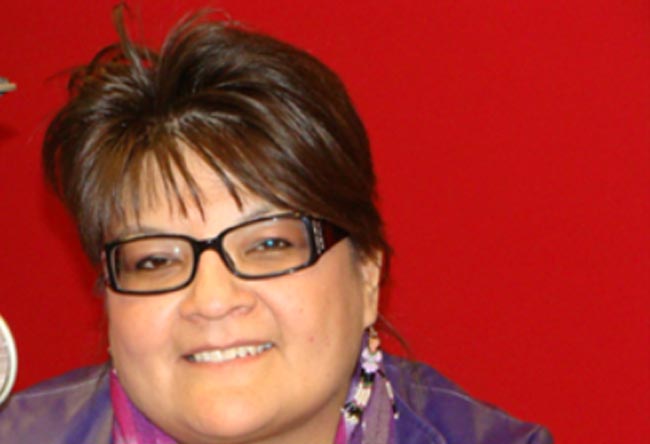Canadore keeps Native students longer

NORTH BAY – Canadore College has the highest Aboriginal student retention rate in Ontario.
Nearly 20 percent of Canadore’s total student population is of Ojibway, Oji-Cree, Cree Algonquin, Mohawk, Inuit or Métis decent from Ontario, Québec and nation-wide, one of the highest representations in the Ontario college system.
“Canadore proudly celebrates an 80.6 per cent Aboriginal student retention rate,” says Canadore College President George Burton. “This is well beyond the provincial average, and I credit this success to the support provided by our dedicated First Peoples’ Centre.”
Centre Director Mary Wabano and her team have been striving to find new ways to support mental health and wellness for Canadore’s students. In 2013, she received good news when proposals to the Mental Health and Innovation Fund (MHIF) and Mental Health Commission of Canada (MHCC) were approved.
Together the partners are developing the first Aboriginal language-specific Mental Health First Aid program in Canada. The program encompasses the help network a person developing a mental health problem or experiencing a mental health crisis receives. It aims to improve mental health literacy, and provide the skills and knowledge to help people better manage potential or developing issues in themselves, a family member, friend or colleague.
“The program is brilliant,” says Wabano. “The only problem is that our population hasn’t been able to access it fully because of language and cultural barriers.”
Work has already begun on translating the program materials into Cree and Ojibway, two of the most spoken Aboriginal languages in Ontario. In addition to the instruction manual translation, First Nation specific case studies are being compiled and Canadore employees are being trained to deliver the program and train other trainers. The goal is to have 12 qualified trainers ready to deploy the program in September 2014 in First Nations communities and to front line staff in Ontario’s colleges and universities.
“As our population increases, so does our power and responsibility,” says Wabano. “We can’t just take power and abuse it, our people know first-hand what kind of harm that inflicts. We need to work together to strike the right balance for ourselves, our culture and our country. Herein lies the key to well-being and success.”
Like Canada, Canadore is seeing growth in its Aboriginal student population. Two years ago, 350 students self-identified as First Nation, Inuit and Métis, and this year it has ballooned to 480. Students on campus have access to an Elder in Residence, a focused Aboriginal Student Association, counselling, peer tutoring and mentorship over the course of their academic experience.
“First Nations peoples usually decide to study at a later age, are used to living in larger families and are more likely to move than other Canadians,” says Wabano. “Understanding these differences is important to developing meaningful support services for them. We take that information and mesh it with heritage, language, culture and tradition to create programs.”
The FPC, unveiled in 2013, is a dedicated space inspired by the teachings of the Medicine Wheel. The location’s physical structure heavily incorporates natural elements to signify the important relationship the First People have with earth, fire, water, stone, wood and plant life. The centre boasts an Aboriginal student lounge and a multi-purpose meeting room that enables peer, mentor and Elder connections and is equipped with technology to enhance flexible learning opportunities.
Canadore’s comprehensive support services and mental health initiatives extend beyond its campuses into First Nations reserves. Of the College’s 480 Aboriginal learners, 150 remain in their own community to study. In fact, over 20 community-based programs are instructed across Ontario in partnership with five Aboriginal Education Institutes. Training partnerships with Aboriginal education institutions, employment agencies and tribal councils have developed capacity for Canadore to pinpoint real-time training solutions specific to any identified community, leading to economic growth and prosperity.
“We develop a lot of unique and responsive programming, but it is about way more than that,” says Wabano. “We inform people, which empowers them. We engage with people of all ages, races, cultures and religions towards a common goal: understanding and respect.”


